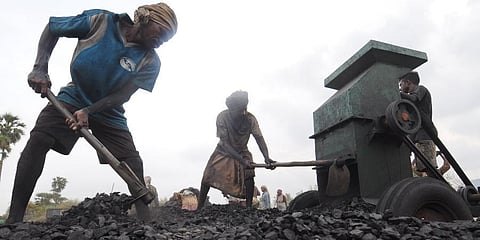Lessons for state governments from coal crisis
The ongoing coal crisis has left several already bleeding state exchequers with a deeper wound. It paved the way for an unsavoury spat between the Centre and some state governments, leaving another blemish on the spirit of federalism. While the Centre maintained that it has enough supplies to meet the demand, coal stocks at several power plants in the country dropped to critically low levels. Some power stations went in for a complete shutdown, forcing states to either buy expensive electricity from the spot market or go for load-shedding, or both. Obviously, it has been an additional burden on states still reeling under the pandemic.
Take, for instance, UP Power Corp Ltd (UPPCL). It has accumulated losses mounting to over Rs 90,000 crore, despite its paltry power generation of 1,837 MW. The situation in the state continued to be grim even after the Yogi government’s efforts to ensure uninterrupted supply of power during the festive season. According to the power minister, UPPCL did not have enough funds to pay for the coal nor the capacity to clear arrears for the electricity it had purchased from NTPC.
Clearly, there has been a slip-up in assessing the spurt in the demand post the lockdown. The spike came after the demand declined for the first time in over three decades in 2020 as industrial units came to a grinding halt due to the pandemic. This fiasco should make state governments sit up and initiate some quick resolutions. Supply of uninterrupted and quality electricity is an important prerequisite for the revival of the economy. Any further botch-up can jeopardise growth prospects. States are struggling with their poorly-managed electricity generation companies. Their cost of production is higher than that of central utilities such as NTPC and NHPC. Most states are still fraught with poor cost realisation and any increase in purchase price is widening the gap further. This anomaly has to be fixed once and forever. Also, it is time for states to focus more on renewable energy and say good-bye to ‘free power’ for political gains.

